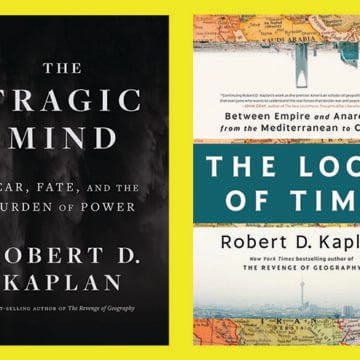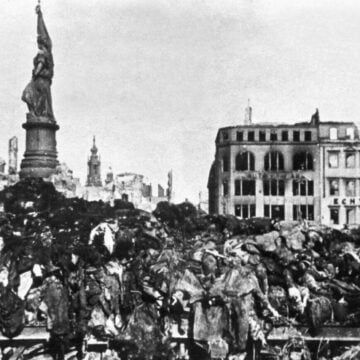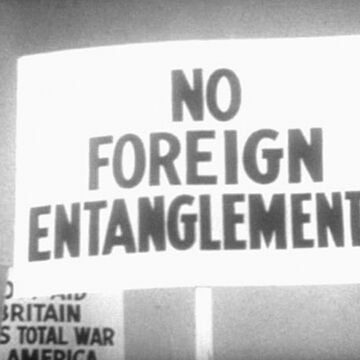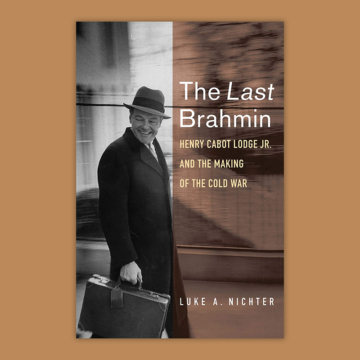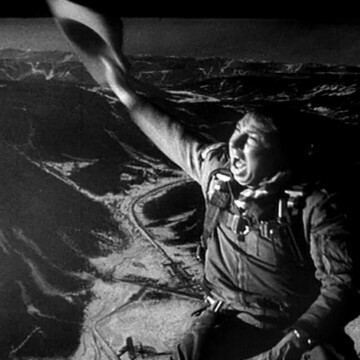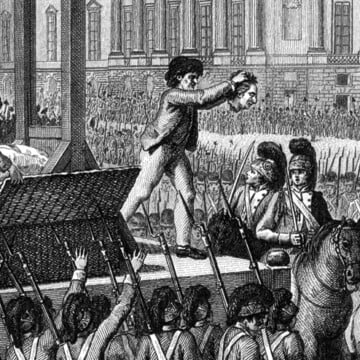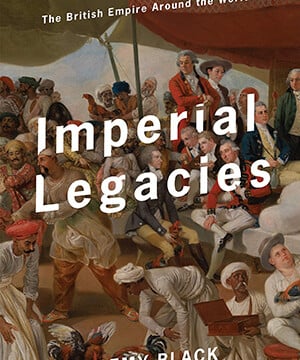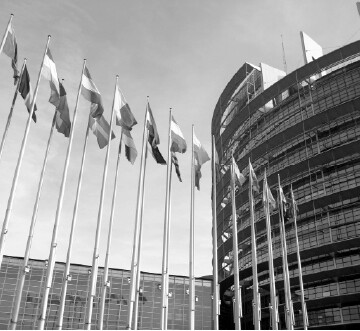Robert Kaplan has distilled the lessons of a life spent in pursuit of tragic knowledge into two books of differing size and scope: The Tragic Mind and The Loom of Time.
Author: Ronald J. Granieri (Ronald J. Granieri)
George Kennan: Gadfly and Insider
There is a lot more to George Kennan than his policy of Soviet containment. This influential man, who never held a real position of power, was a bundle of contradictions.
Zero Plus Ten
Harald Jähner's Aftermath offers a panoramic view of the process of recovery for Germans in all occupation zones during the first 10 years after World War II.
The Boomers’ Bogus View of World War II
Using history, memoir, and popular culture as sources, Elizabeth Samet highlights the contrast between the concrete realities of World War II and its subsequent transfiguration in American memory since the 1990s.
What We Are Reading: November 2022
Short reviews of The Fox in the Attic, by Richard Hughes, and Boke Named the Gouernour, by Sir Thomas Elyot.
Threats? What Threats?
In The Stupidity of War, John Mueller takes an absolutist position of noninterventionism in foreign policy. There is much to enjoy in this book, though that joy is tempered when one reads it while war rages in Ukraine.
Dynastic Nostalgia
The Last Brahmin: Henry Cabot Lodge Jr. and the Making of the Cold War by Luke A. Nichter Yale University Press 544 pp., $37.50 Even before the Kennedys took center stage in American mythology, Americans have had their share of legendary families, the decline and fall of which have been staples of both history and...
Grappling With Armageddon
The Bomb: Presidents, Generals, and the Secret History of Nuclear War; by Fred Kaplan; Simon & Schuster; 384 pp., $18.00 In 1958, former RAF officer Peter George (under the pseudonym Peter Bryant) wrote Red Alert, a novel about a communication accident that almost triggers a nuclear war. In a series of short, increasingly tense, time-stamped chapters,...
Old Story, New Resonances
A New World Begins: The History of the French Revolution by Jeremy D. Popkin; Basic Books; 640 pp., $35.00 Zhou Enlai was asked in the early 1970s what he, one of the architects of the Chinese communist revolution, thought of the French Revolution. His response: “Too early to say.” The international press seized upon that comment, which satisfied...
Empire States of Mind
Imperial Legacies: The British Empire Around the World by Jeremy Black Encounter Books 216 pp., $25.99 Although this relatively short book is closer to an extended, episodic essay than to the comprehensive history of the British empire implied by the title, it is an excellent example of the author’s style. Jeremy Black takes a broad...
Strong State, Strong Schools? The German System
Anglo-Americans habitually disparage the “socialist” Europeans, as if it were just or fair to lump all Continental economies under one pejorative label. Rather than relying on epithets, however, would-be economic and educational reformers should take a closer look at Germany, where the combination of regulated markets and the welfare state (what the Germans call the...
Normal Germans, Nervous Europeans
The saga of Europe’s debt crisis can be dispiriting for anyone interested in the future of the Old Continent. There is, however, another, perhaps larger story lurking beneath the tales of billions and bond yields, and that is the story of Germany’s changing role. Although French President Nicolas Sarkozy gladly rushes toward any camera or...
Reviving the West: The Case for Europe
In the early years of the current century, confident predictions about the inevitable rise of Europe to a position of world power and influence filled the air over the Atlantic. The recent travails of the European Union have undermined that confidence. The apparent and impending economic collapse of the PIIGS (Portugal, Ireland, Italy, Greece, and...
